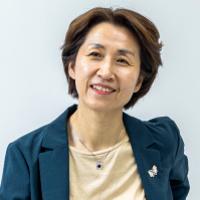
By Yoon Seongmee
Chair ambassador of APEC 2025 Senior Officials' Meeting
From Oct. 31 through Nov. 1, 2025, Korea will host the 32nd Asia-Pacific Economic Cooperation (APEC) Economic Leaders' Meeting for the first time since 2005. APEC is a key forum for economic cooperation in the Asia-Pacific region comprising 21 member economies. APEC member states including the U.S, China and Japan account for more than 60% of global gross domestic product and over half of world trade.
The theme and priorities for this year's APEC are "Building a Sustainable Tomorrow: Connect, Innovate, Prosper" in line with the APEC Putrajaya Vision 2040, which outlines the long-term vision of APEC to achieve an open, dynamic, resilient and peaceful Asia-Pacific Community by 2040. The three priorities align with the Putrajaya Vision's core objectives, aiming to bolster physical, institutional and people-to-people connectivity to promote trade and investment, leverage digitalization and innovation for economic growth, and foster quality growth that brings tangible benefits to all.
As the chair of APEC 2025, Korea is leading efforts to produce important deliverables on artificial intelligence (AI) and demographics at the Economic Leaders' Meeting. AI is already a core part of the global economy, driving industrial innovation, competitiveness and productivity. Yet it also brings challenges such as a widening digital divide and surging energy consumption. To harness the transformative potential of AI for economic growth in a sustainable and inclusive way, we need to foster a safe, reliable, resource-efficient and resilient AI ecosystem as well as advance efforts toward meaningful capacity building for all.
Demographic change presents another pressing challenge for Asia-Pacific economies, directly affecting their productivity, fiscal soundness and social integration. A shrinking and aging workforce is easily considered a crisis, threatening economic sustainability. But if we proactively respond through a holistic approach, demographic change can instead offer new opportunities for economic and social advancement. To turn such challenges into opportunities, Korea is fully committed to leading the way forward.
In August this year, Korea hosted the APEC High-Level Dialogue on Cultural and Creative Industries (HLD-CCI). This was APEC's first meeting ever on the cultural aspect of the economy. At the event, APEC member states acknowledged CCI as an important economic engine that can contribute to realizing a dynamic and prosperous Asia–Pacific region, as well as play a vital role in fostering connectivity, mutual understanding and cultural exchange. At the upcoming Economic Leaders' Meeting, Korea, as a global cultural power, will offer opportunities to showcase K-culture and highlight the role of CCI as a new driver for economic growth and regional cooperation. It is only fitting that the venue for the Economic Leaders' Meeting and HLD-CCI is Gyeongju, the cultural hometown of Korea.
Korea has assumed a key role in many of APEC's historic milestones. Australian Prime Minister Bob Hawke announced the idea of creating APEC while visiting Seoul in 1989. Korea was one of APEC's 12 founding members and has played a critical role in the expansion and development of APEC as the premier economic forum in the Asia-Pacific, including hosting the APEC Economic Leaders' Meeting in 2005.
Korea shares the vision of maintaining an open, multilateral trading system with APEC, and has contributed to regional integration and the addressing of emerging agenda such as digital transformation. In this light, Korea is proud to once again contribute to advancing cooperation within APEC as the host of the 2025 Economic Leaders' Meeting.
arete@korea.kr